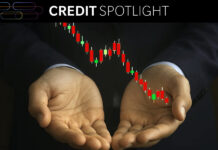Signalling risk in credit, if one counterparty is 50% volume
How do you avoid information leakage? Does this change if half the market is trading with a single counterparty? Knowing that electronic market maker,...
Intelligent application of artificial intelligence in credit
A picture has emerged of the future credit desk for buy-side traders, from discussions at the Fixed Income Leaders’ Summit in Washington DC last...
When volatility improves credit liquidity
Credit market liquidity has been positive in the first half of 2025, despite the high levels of volatility.
There are several dynamics which might be...
Portfolio trading sees first decline of 2025
Capped estimated investment grade (IG) and high yield (HY) portfolio trading volumes were the highest year-to-date in April 2025, representing approximately 10% of total...
Selling the dip
Credit investors may see the relative calm in the market at present as a point at which to trade into safer positions, according to...
Worsening credit outlook does not hurt credit trading
The corporate bond market has stood up to the test of tariffs – but will the corporate environment? As earnings season kicks in, companies...
Corporate bond trade sizes climb in Europe
Total notional traded in European corporate bonds reached €5,397 billion in 2024, according to ICMA’s latest Secondary Market Data Report, an 11.8% increase on...
Direct streaming on credit trading platforms
Sell-side bond trading counterparties price trades according to their clients’ profiles, based on tiering systems. That model directs the pricing of risk according to...
Crunch on liquidity costs
As bid-ask spreads begin to widen on both sides of the Atlantic, buy-side credit traders need to reassess how to best manage the crunch...
The right way to trade credit
Of course, there is no right way to trade all credit, but there are clearly advantages in trading credit in such a way that...















